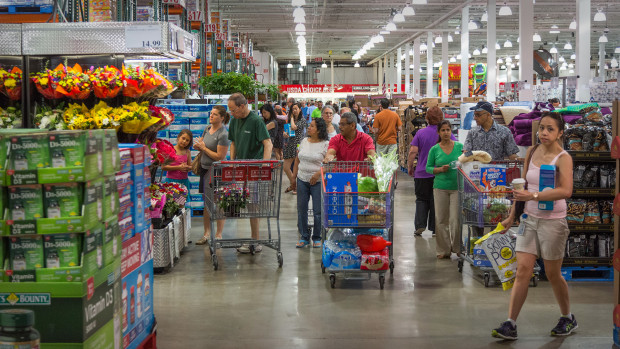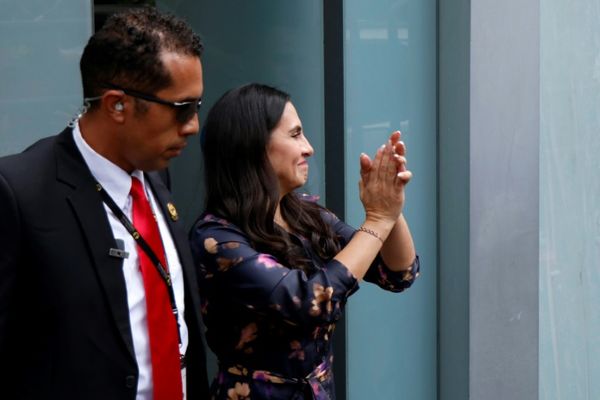
Costco has an unusually strong relationship with its customers.
Since the people who shop in its stores are members, there's a bond between them and the retailer.
Customers can easily understand Costco's (COST) -) business model. They pay $60 for a basic membership or $120 for an Executive membership (which comes with 2% cash back up to $1,000). And in return, the retailer promises to deliver the best possible prices.
DON'T MISS: Twice bankrupt beloved 1980s retailer makes surprise comeback
With few exceptions, the only thing that matters to Costco members is price. So they'll put up with hard-to-reach merchandise, a lack of workers on the store's floors, and a limited selection of items for purchase.
Costco and its members understand that the retailer has put all its resources into keeping prices down. Those efforts include negotiating with vendors to lower prices and when it is forced to, the chain will eat some of the cost increases that rivals like Target (TGT) -), Walmart, and Kroger would pass on to customers.
Through the membership model Costco has created a partnership with its customers. Everyone has the same goal -- saving money -- and that has paid off in a surprising way.
Costco not only enjoys tremendous loyalty -- its membership-retention rate exceeds 90% -- but the chain also does not have a problem that has been plaguing its rivals.

Image source: Xinhua/Ting Shen via Getty Images
Kroger, Target and Walmart have a theft problem
Theft, or shrink, as it's known in the retail industry, has been a steady, and more recently growing, problem for most retailers.
"Shrink has increased a bit this year. It increased last year. It's uneven across the country. It's not in every market. Some markets are higher than others," Walmart (WMT) -) President John Furner said during his company's second-quarter-earnings call.
Target (TGT) -) Chief Financial Officer Michael Fiddelke spoke about shrink being a drag on the chain's profits during its second-quarter earnings call.
"[We're] working hard, both inside our stores and with government and community partners, to achieve lower loss rates over time," he said.
"And our long-run expectation is that shrink rates will moderate from today's unsustainable levels. But so far, we've only seen indications that loss rates might soon be reaching a plateau but have not yet seen evidence that loss rates will begin to come down."
Kroger (KR) -) CFO Gary Millerchip also made clear that theft has been a problem for the grocery chain.
"We do think that shrink will continue to be somewhat of a headwind," he said during Kroger's KR first-quarter-earnings call.
"It's really in the center of the store, I would say, that we're -- the team is doing a fantastic job in managing fresh shrink, but there are a lot of structural challenges right now in center store shrink, as you've heard, I think, from a number of different retailers in the marketplace."
Costco does not have a shrink problem
Costco, unlike its rival across the retail universe, has not seen an increase in theft. CFO Richard Galanti discussed the matter during his company's third-quarter earnings call.
"By the way, one other question that we've gotten a couple of times of late because of some of the companies out there that reported much higher shrink, our shrink is intact," he said.
"We haven't seen any major change in shrinkage. It fluctuated a couple, three basis points [0.03 percentage point] up, really, before covid as we rolled out self-checkout. And since then, it's come back down a little bit."
Galanti did not say why Costco did not have the same theft/shrink issues that have plagued nearly every other retailer.
"We've been fortunate in that regard" was his only other comment on the topic.
Costco reported a U.S. and Canada membership renewal rate of 92.6% at the end of the third quarter. That was an all-time high.







